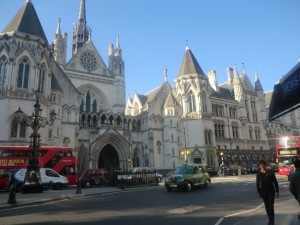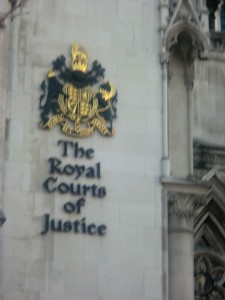by Satish Sekar © Satish Sekar (April 10th 2008)
Extraordinary
The extraordinary case of Gary Mills and Tony Poole is in the news again. After fourteen years of wrongful imprisonment, they were freed in June 2003 – the last seven because senior judges did not know the law or ignored it. The main reason for the quashing of their convictions was the cumulative effect of the lack of integrity of the inquiry into the controversial death while in police custody of Hensley Wiltshire in 1989.
More than four years ago they lodged a complaint with the Crown Prosecution Service (CPS) alleging criminal conduct by police. They claimed that the number two in the inquiry, former Detective Inspector Trevor Gladding, had perverted the course of justice and perjured himself. Allegations of serious malpractice were made against other officers as well.
Two different sets of appeal judges: a high court jury1 and a former Lord Chief Justice were far from impressed with Gladding’s conduct. Eventually, the Criminal Cases Review Commission also declared itself dissatisfied with the effect that several instances of police malpractice could have had on the safety of the convictions and referred it back to the Court of Criminal Appeal, which heard it in 2003.
Inadequate
The CPS referred their complaint for investigation, which was picked up by the Independent Police Complaints Commission (IPCC) in April 2004 and would become a major test of the independence of the new body. Nearly four years later it issued a provisional report dismissing the complaint.
“The investigation report belongs to Gloucestershire Constabulary and it is for them to decide what can be released into the public domain,” said IPCC spokesperson David Nicholson.
I raised eleven questions with them. He responded with: “It is for Gloucestershire to decide whether and how they answer.” To date, the IPCC, CPS and Gloucestershire Police have not answered the queries. In other words, the IPCC and CPS think it is acceptable for the bodies complained about to exonerate themselves and decide what information should be allowed into to the public arena. So much for openness and integrity.
Legacy
Their complaint was a legacy case, meaning it was investigated under the old rules, which meant that independent investigators were not used and there was no requirement of disclosure of the report. The IPCC has done itself no favours at all.
“The matter has now been concluded and the complaints were unsubstantiated,” said Nicholson. Such a comment is quite frankly ludicrous and merely emphasises the unsatisfactory nature of the IPCC.
The IPCC’s finding contradicts all previous inquiries including the much criticised investigation for the Police Complaints Authority (PCA) conducted by former Chief Constable of Durham Police George Hedges in the early 1990s.
Culture of Secrecy
The IPCC was established to counter the culture of secrecy surrounding complaints against police. This shameful decision and refusal to make its full findings public will taint its claims of independence for years to come.
The Commissioner in charge of this complaint was Rebecca Marsh. She wrote: “On the evidence available, the IPCC is not satisfied that there is a realistic prospect that the conduct of the officers complained of fell below the required standard. We are therefore minded to conclude that misconduct proceedings cannot be justified.”
And this in the case that the then Lord Chief Justice, Lord Woolf said: “Almost every aspect of this prosecution is tarnished.”
Nevertheless, we now know that perjury and perverting the course of justice do not constitute an abuse of due process of law2 and that such conduct does not fall below the required standard of conduct from police officers,3 but that it is not libellous to say that Trevor Gladding perverted the course of justice and perjured himself.4
“We agree that this has taken a very long time to resolve,” said Mr Nicholson. “The setting up of the IPCC was because of frustrations with the ‘previous system’ and the length of time that cases took to resolve.”
The average IPCC investigation in the relevant region takes 166 days. This investigation took almost four years to reach incredible conclusions at great expense in a report that will almost certainly never see the light of day. The name has changed, but judging by this decision not much else.
1 In 1998 the jury at Gladding’s libel trial against Channel 4 and the publisher of David Jessel’s book Trial and Error concluded that it was not libellous to say that Gladding had perverted the course of justice and perjured himself at Mills and Poole’s trial. Despite this clear finding against Gladding Gloucestershire Police refuse to investigate him and the CPS refuse to order them to.
2 See the 1996 judgement in Court of Appeal delivered by a then Lord Justice, Sir Phillip Otton.
3 See the decision of the IPCC.
4 See the transcripts, summing up and verdict in the 1998 libel trial.



